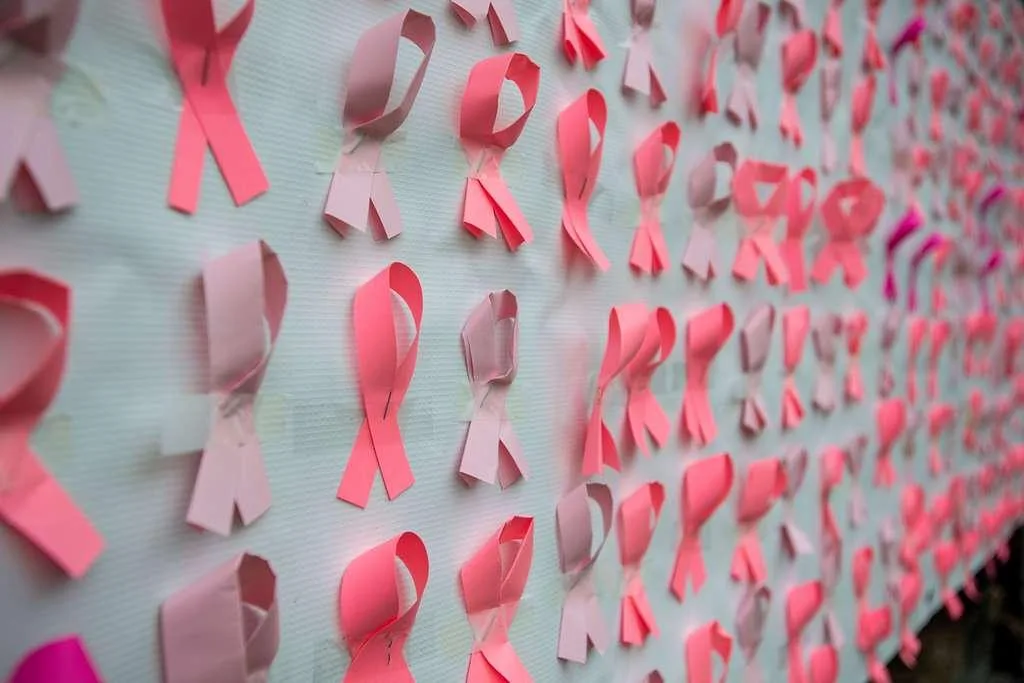
WASHINGTON – October is Breast Cancer Awareness Month and the Howard University Cancer Center is hosting a major community event to raise awareness of the disease, the most commonly diagnosed cancer among Black women.
The Howard University Cancer Center and Howard University Hospital have long spearheaded programs to meet the needs of women lacking access to care in the metro region. On Friday, October 6, the Cancer Center will host its annual Pink Party on the front pavilion of Howard University Hospital, 2041 Georgia Ave, NW.
The event will take place from 11 a.m. to 2 p.m. Attendees can learn about ways to reduce breast cancer risk, sign up for mammograms, and get connected to health care and survivorship services. Event activities will include line dancing and photos with the Prince George’s County Fire Department’s Pink Engine “Courage.”
“We want to create a fun and engaging environment for people to be better informed about breast health. Breast care is no longer a one-size-fits-all approach,” said Carla Williams, Ph.D, interim director of the Howard University Cancer. “African-American women are more likely to die from breast cancer than women from any other race or ethnicity. That’s why it’s so important for people advocate for themselves and take action to get optimal screening based on their personal and family
health history.”
According to the American Cancer Society, breast cancer is the most commonly diagnosed cancer among women in the United States, after nonmelanoma skin cancer, with a lower survival rate at every stage of the disease largely due to less access to high-quality healthcare. In 2022, approximately 36,000 Black women were diagnosed with the disease and more than 6,800 deaths.
Improvements in early detection and screening have led to a decrease in mortality for Black women since 1990. However, disparities with women persist. Breast cancer death rates in the most recent time period (2015-2019) are 41% higher in Black women compared to White women.
Black women are twice as likely as women of other racial and ethnic groups in the US to be
diagnosed with triple negative breast cancer (TNBC). Women with TNBC generally have poorer outcomes because of few effective treatments.
Potentially modifiable factors that increase breast cancer risk include being overweight or obese, menopausal hormone therapy, alcohol consumption, and physical inactivity. The American Cancer Society reports that prevention, screening mammography can detect breast cancer at an early stage, when treatment is often less intensive and more successful.
However, screening effectiveness is influenced by both the quality of screening and the timeliness of follow-up. Black women are less likely than White women to have their imaging performed at a facility with the most current technology, such as digital breast tomosynthesis, and also have a longer time between abnormal results and follow-up.
For additional information, please contact Cherie Spencer, director of community reach at the Howard University Cancer Center, at c_spencer@howard.edu.
###
About Howard University
Founded in 1867, Howard University is a private, research university that is comprised of 14 schools and colleges. Students pursue more than 140 programs of study leading to undergraduate, graduate and professional degrees. The University operates with a commitment to Excellence in Truth and Service and has produced two Schwarzman Scholars, four Marshall Scholars, four Rhodes Scholars, 12 Truman Scholars, 25 Pickering Fellows and more than 165 Fulbright recipients. Howard also produces more on-campus African American PhD. recipients than any other university in the United States. For more information on Howard University, visit www.howard.edu.
Media contact: Sholnn Freeman; sholnn.freeman@howard.edu

